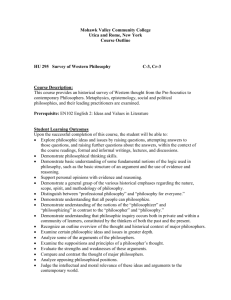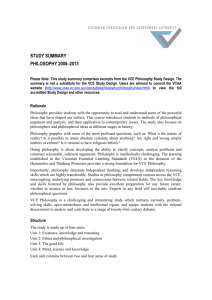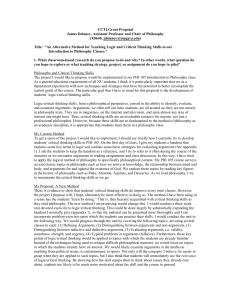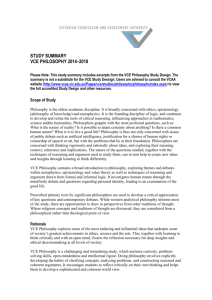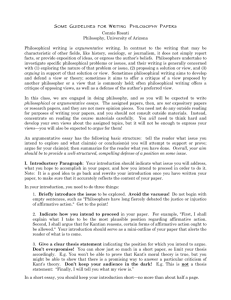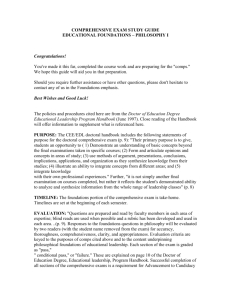HU296 Topics in Philosophy - Mohawk Valley Community College
advertisement
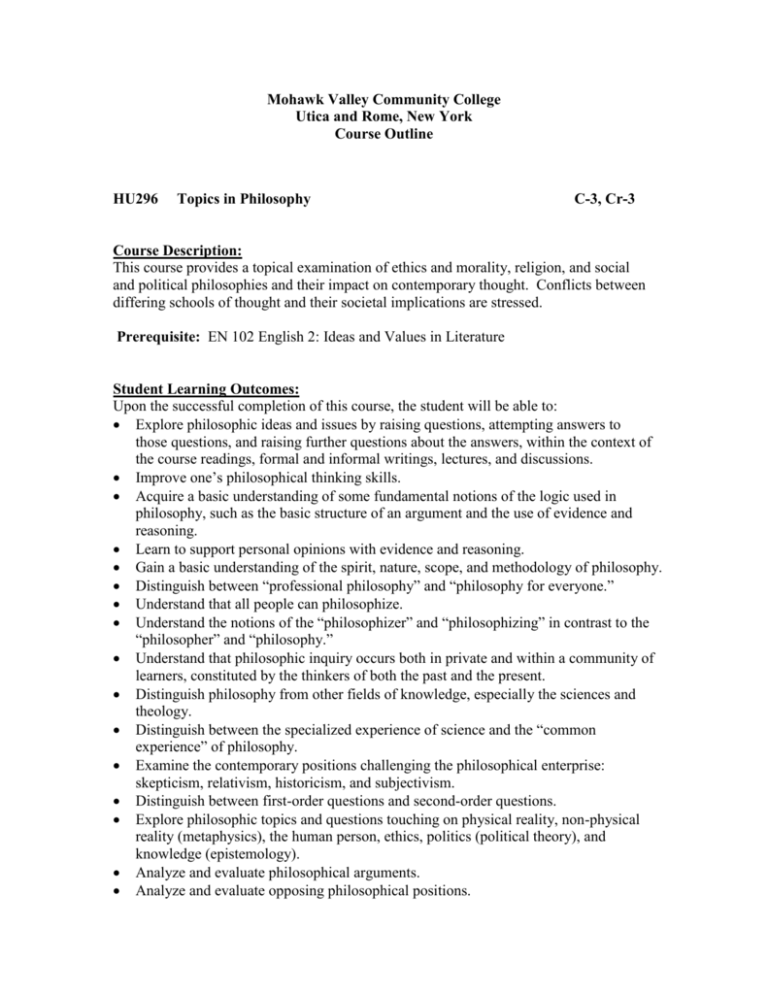
Mohawk Valley Community College Utica and Rome, New York Course Outline HU296 Topics in Philosophy C-3, Cr-3 Course Description: This course provides a topical examination of ethics and morality, religion, and social and political philosophies and their impact on contemporary thought. Conflicts between differing schools of thought and their societal implications are stressed. Prerequisite: EN 102 English 2: Ideas and Values in Literature Student Learning Outcomes: Upon the successful completion of this course, the student will be able to: Explore philosophic ideas and issues by raising questions, attempting answers to those questions, and raising further questions about the answers, within the context of the course readings, formal and informal writings, lectures, and discussions. Improve one’s philosophical thinking skills. Acquire a basic understanding of some fundamental notions of the logic used in philosophy, such as the basic structure of an argument and the use of evidence and reasoning. Learn to support personal opinions with evidence and reasoning. Gain a basic understanding of the spirit, nature, scope, and methodology of philosophy. Distinguish between “professional philosophy” and “philosophy for everyone.” Understand that all people can philosophize. Understand the notions of the “philosophizer” and “philosophizing” in contrast to the “philosopher” and “philosophy.” Understand that philosophic inquiry occurs both in private and within a community of learners, constituted by the thinkers of both the past and the present. Distinguish philosophy from other fields of knowledge, especially the sciences and theology. Distinguish between the specialized experience of science and the “common experience” of philosophy. Examine the contemporary positions challenging the philosophical enterprise: skepticism, relativism, historicism, and subjectivism. Distinguish between first-order questions and second-order questions. Explore philosophic topics and questions touching on physical reality, non-physical reality (metaphysics), the human person, ethics, politics (political theory), and knowledge (epistemology). Analyze and evaluate philosophical arguments. Analyze and evaluate opposing philosophical positions. Assess the opinions and arguments of those who make up the community of learners in the classroom. Judge the intellectual and moral relevance of philosophical ideas and arguments to the contemporary world. Use the resources of libraries to write a research paper on a philosophical idea, issue, school, or movement. Major Topics: Historical survey of Western thought from the pre-Socratics to contemporary philosophers Metaphysics Epistemology Social and political philosophies August 2011
